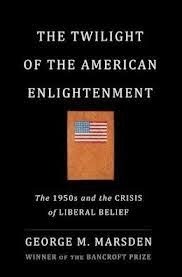Justin Taylor's Blog, page 119
February 11, 2014
Jared Wilson on God’s Promise in Pastoral Weakness
Pastor Jared Wilson—author of The Pastor’s Justification: Applying the Work of Christ in Your Life and Ministry and most recently, the new book The Storytelling God: Seeing the Glory of Jesus in His Parables—delivers a powerful seminar at the recent DG conference (February 2014). In it he argued that (1) in the weakness of suffering, Christ will be your strength; (2) in the weakness of failure, Christ will be your validation; (3) in the weakness of sin, Christ will be your justification; and (4) from the weakness of the flesh Christ will be your glorification.
You can watch the talk below:
For related titles, see J. I. Packer’s Weakness Is the Way: Life with Christ Our Strength and Kent and Barbara Hughes’ Liberating Ministry from the Success Syndrome.
February 10, 2014
Annoying Things in Worship Songs
A classic from Jeremy Pierce:
Here are some of the things I really hate in a worship song.
Too simplistic, banal, lacking in depth, shallow, doctrineless: Consider that one that just talks about unity among brothers that only mentions God in passing at the very end.
It’s so repetitive. I mean, come on, how many times can you repeat “His steadfast love endures forever” before you start thinking the song is going to go on forever? Examples: here and here.
For some songs, the focus is too much on instruments, and the sheer volume leads to its seeming more like a performance than worship and prevents quiet contemplation.
There might be too much emphasis on too intimate a relationship with God, using first-person singular pronouns like “me” and “I” or second-person pronouns like “you” instead of words like “we” and “God.” This fosters a spirit of individualism, and it generates an atmosphere of religious euphoria rather than actual worship of God. Worship should be about God, not about us. Or what about the ones that use physical language to describe God and our relationship with him? Can you really stomach the idea of tasting God?
Some songs have way too many words for anyone to learn.
It patterns its worship on experiences that not everyone in the congregation will be able to identify with. If you’re not in the frame of mind or don’t have the emotional state in question (e.g., a desperate longing for God), then what are you doing lying and singing it? Worship leaders who encourage that sort of thing are making their congregations sing falsehoods.
Then there’s that song with the line asking God not to take the Holy Spirit away, as if God would ever do that to a genuine believer.
Then there’s that song that basically says nothing except expressing negative emotions.
Finally, there are those songs that have like four or five lines that people just either have to repeat over and over again or just sing briefly and never get a chance to digest.At this point I’m so outraged that people would pass this sort of thing off as worship that I’m almost inclined to give in to the people who think we shouldn’t sing anything but the psalms.
Oh, wait. . . .
What Is Poverty?
Brian Fikkert—co-author of When Helping Hurts: How to Alleviate Poverty Without Hurting the Poor . . . and Yourself, and founder and executive director of the Chalmers Center (whose vision is for “local churches to declare and demonstrate to people who are poor that Jesus Christ is making all things new”)—looks at the deeper meaning of poverty:
Seeking Allah, Finding Jesus: A Devout Muslim Encounters Christianity
Nabeel Qureshi grew up in the United States with an extremely devout Muslim family. In fact, they were descendants of a long line of missionaries to Islam. If someone ever sought to share the gospel with him, he would use it as an opportunity to explain why Islam is true and Christianity is not.
You can watch his testimony below as he shares what happened. Don’t miss the last couple of minutes in particular.
Nabeel’s new book is now out: Seeking Allah, Finding Jesus: A Devout Muslim Encounters Christianity (Zondervan, 2014). You can read an excerpt here.
Dub Oliver Named Union University’s 16th President
 News from Union University:
News from Union University:
Union University trustees have selected Samuel W. (“Dub”) Oliver, president of East Texas Baptist University, as the 16th president of Union University after a Feb. 10 vote.
“Dr. Oliver is a man of strong Christian conviction who is theologically informed, passionate about students and highly respectful of the work of faculty members,” said Norman Hill, chairman of Union’s Board of Trustees and chairman of the search committee that selected Oliver. “His skills as an administrator and educator build on Union’s already established reputation for academic excellence, and we are honored and thrilled by this appointment.”
Oliver succeeds David S. Dockery, who has served as Union’s president for the past 18 years.
“We are deeply humbled by this call to serve at Union University,” Oliver said. “I am hopeful and enthusiastic about working with the Board of Trustees, faculty, staff, students, alumni, and friends of the university to extend, enhance, and enlarge all that Union is — for the glory of God and for the good of humankind.”
You can read the whole thing here.
May the Lord richly bless Dr. Oliver’s presidency and the mission of Union University, as well as this new phase of life and ministry for Dr. Dockery!
George Marsden on the 1950s and the Crisis of Liberal Belief
 Any time George Marsden, the senior historian of evangelicalism and American culture, publishes a book, it is worth noting. (See, for example, his work on Fundamentalism and American Culture, or his work on the history of Fuller Seminary in relationship to fundamentalism and neo-evangelicalism, or his magisterial biography of Jonathan Edwards.)
Any time George Marsden, the senior historian of evangelicalism and American culture, publishes a book, it is worth noting. (See, for example, his work on Fundamentalism and American Culture, or his work on the history of Fuller Seminary in relationship to fundamentalism and neo-evangelicalism, or his magisterial biography of Jonathan Edwards.)
His latest is entitled The Twilight of the American Enlightenment: The 1950s and the Crisis of Liberal Belief (Basic Books, 2014).
Duke University historian Grant Wacker summarizes and commends the book:
Another masterpiece. In prize-winning works on fundamentalism, university culture, and Jonathan Edwards, Marsden distinguished himself with the erudition and perceptiveness of his analyses. In this study, he displays the same virtuosity. Marsden anchors the center/left consensus of the 1950s in Enlightenment rationalism, minus natural law. So it was that intellectuals of the 1950s laid dynamite in the foundation. They inadvertently precipitated the disarray of the 1960s and the bitterness of the 1970s. Americans are still seeking their bearings. Marsden finds hope in a genuine pluralism that welcomes all thoughtful voices back to the table. Elegantly yet simply written, this brilliant, searching, learned work will stand for years as a tract for the times.
To hear a conversation with Dr. Marsden about this book and the ideas behind it, you can listen to (or read the transcript from) Al Mohler’s “Thinking in Public” podcast episode devoted to the book.
John Wilson and Stan Guthrie also recently discussed the book on their Books & Culture podcast.
February 9, 2014
Sinclair Ferguson: 3 Lessons from 42 Years in Pastoral Ministry in 20 Minutes
At the recent Desiring God conference, Dr. Sinclair Ferguson took 20 minutes to explain three lessons he has learned in over four decades of pastoral ministry, having to do with (1) ourselves and our people, (2) ourselves and our preaching ministry, and (3) ourselves and our walk with God.
First, he emphasizes the absolute centrality of loving the people God gives us to serve. Second, he insists that we must listen to our own preaching as we preach it; God wants us to be under the ministry of the word with which we are engage. Finally, we must remember the privilege of living the whole of our lives in the presence of our triune Lord.
And here is the little book of which Ferguson says, “Every minister should read it once a year—at least!”
February 7, 2014
The Old Testament in 10 Minutes + the New Testament in 10 Minutes
Jason Derouchie (who teaches Old Testament at Bethlehem College & Seminary and is the editor of the highly praised What the Old Testament Authors Really Cared About: A Survey of Jesus’ Bible [Kregel, 2013]) and Andy Naselli (who teaches NT and theology at Bethlehem College & Seminary and is co-author with D. A. Carson and Doug Moo of Introducing the New Testament: A Short Guide to Its History and Message [Zondervan, 2010]) walk us through the whole Bible in 20 minutes:
February 6, 2014
A New Lecture by J. I. Packer on Personal Holiness
At the age of 87, Dr. Packer is not traveling to lecture much these days, but a few weeks ago (January 16th, 2014) he spoke at the Trinity School for Ministries on a subject of his choice. He says that his desire in his remaining days is to “campaign for a renewal of personal holiness, as a project, as a focus of interest, as a reality—which our churches need, which our country needs, which the world needs at this time in its history.”
Dr. Packer’s two latest books are Weakness Is the Way: Life with Christ Our Strength (Crossway, 2013) and Finishing Our Course with Joy: Guidance from God for Engaging with Our Aging (Crossway, 2014).
The Truth in Black & White: A Discussion of Race Brought Under the Lordship of Christ
Mark Liederbach (professor of theology, ethics, and culture at Southeastern Seminary) sits down with Danny Akin (president of Southeastern ), Walter Strickland (instructor of theology at Southeastern), and William “Duce” Branch (hip-hop artist, a.k.a. The Ambassador) to discuss how the Gospel speaks to issues of race.
Dr. Liederbach begins with a six-minute overview of how the gospel relates to issues of “race.”
Justin Taylor's Blog
- Justin Taylor's profile
- 44 followers



